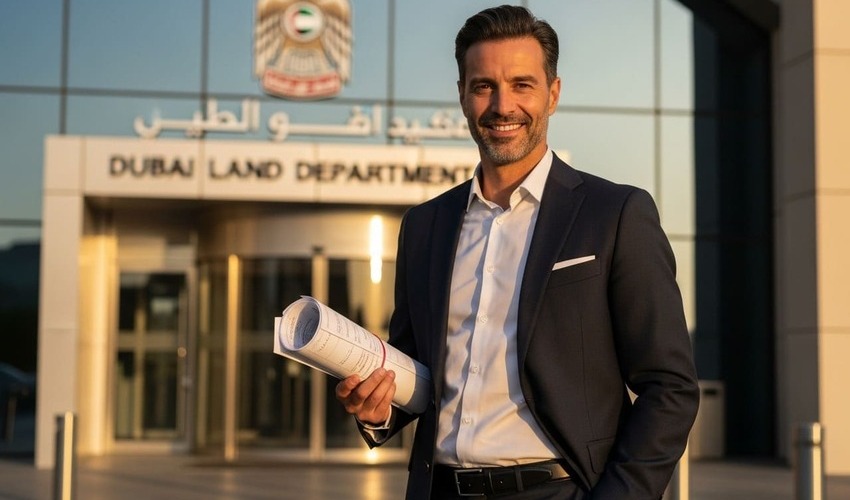Top Mistakes to Avoid When Investing in Dubai Real Estate
By Svarn Development Team | Last Updated: October 8, 2025Avoid costly errors when buying Dubai property by steering clear of overpaying, skipping due diligence, ignoring legal compliance, or misjudging ROI potential.
Dubai’s real estate market is dynamic, lucrative—and full of opportunity. But even seasoned investors make critical mistakes that cost time, money, and peace of mind.
In this expert-backed guide, we break down the top mistakes to avoid when investing in Dubai property in 2025. Whether you’re buying off-plan, looking for rental yield, or targeting long-term appreciation, this is the knowledge you need to protect your investment.
Mistake 1: Skipping Developer Due Diligence
Why it happens: Many investors are drawn in by glossy brochures and promises of high ROI—without checking the developer’s track record.
What to do instead:
▶️ Always check if the developer is registered with RERA
▶️ Review their past projects for delivery timelines and build quality
▶️ Confirm the project is listed in the DLD’s official portal
Real-world tip: Google the developer’s name + “project delay” or “legal dispute” before signing.
Mistake 2: Not Understanding Freehold vs Leasehold Zones
Common confusion: Foreigners can buy only in designated freehold areas—but many confuse this with leasehold (99-year tenure).
Avoid this by:
▶️ Reviewing the DLD’s updated freehold zone list
▶️ Consulting a real estate lawyer or licensed broker
▶️ Confirming title deed ownership rights before paying a deposit
Quick comparison:
▶️ Freehold = full ownership, resale rights
▶️ Leasehold = long-term lease, no land ownership
Mistake 3: Underestimating Total Ownership Costs
Many buyers only consider the property price. But there are hidden costs that add up:
▶️ 4% DLD Transfer Fee
▶️ Service charges (AED 12–25 per sq ft annually)
▶️ Maintenance costs, insurance, furnishing
▶️ VAT on certain transactions
Example: A 2-bedroom apartment with AED 1.2M price may incur AED 15–20K annually in non-mortgage expenses.
Mistake 4: Rushing into Off-Plan Without Understanding Risks
Why it’s risky:
▶️ Construction delays
▶️ Poor build quality
▶️ Project cancellation or handover issues
Mitigation tips:
▶️ Choose RERA-approved developers with escrow protection
▶️ Avoid buying purely for speculation
▶️ Read the SPA (Sales & Purchase Agreement) thoroughly
If you’re planning to buy off plan property in Dubai, always ensure your payments go into a secure escrow account regulated by RERA.
Mistake 5: Ignoring Legal Compliance and Contract Clauses
Too many buyers skip legal reviews.
Key contract elements to review:
▶️ Payment milestones
▶️ Penalties for delays or cancellations
▶️ Exit clauses and force majeure conditions
Expert tip: Use a licensed UAE property lawyer to review contracts—even if you’re using an agent.
Mistake 6: Overestimating Rental Yield or ROI
Common myth: “Rental yields in Dubai are always 8–10%.”
Reality: ROI depends on:
▶️ Location
▶️ Unit size
▶️ Finishing and furnishings
▶️ Market supply vs demand
Use portals like Bayut, Property Finder, or RERA’s Rental Index to get realistic estimates. In upcoming areas like around JVC Metro Station, yields vary greatly depending on walkability, connectivity, and amenities.
Mistake 7: Not Verifying Title, NOC, or Mortgage Status
Before buying, always verify:
▶️ Title deed authenticity via DLD
▶️ NOC from developer (no outstanding payments)
▶️ Mortgage clearance if resold with a loan
Note: This is essential for both ready and off-plan properties nearing handover. If opting for an off plan mortgage in Dubai, confirm if your bank supports the specific project.
Mistake 8: Following Unlicensed Agents or Unverified Listings
Dubai’s market is regulated—but scams happen.
Avoid:
▶️ Social media agents without RERA license numbers
▶️ Listings with no DLD listing ID
▶️ Paying deposits to personal accounts
Mistake 9: Not Factoring in Exit Strategy or Resale Timeline
Ask before you buy:
▶️ Do you plan to sell in 3, 5, or 10 years?
▶️ Is this for end-use or investment?
Some projects have limited resale liquidity due to location, finishing, or surrounding infrastructure. However, newer developments like Sereno Residences in JVC are gaining traction among both end-users and investors.
Smart move: Check historical resale activity in the same tower or area before committing.
Mistake 10: Letting Emotion Drive the Investment Decision
Emotional traps:
▶️ Choosing a unit for the view instead of ROI
▶️ Overpaying because it “feels like home”
▶️ Trusting charisma over credentials
Remember: this is a business decision. Trust data, not sales hype.
Invest Smarter, Avoid Regret
Dubai is one of the most investor-friendly markets globally—but only if you do it right. Avoiding these 10 common mistakes can save you thousands and protect your long-term returns.
✅ Always do due diligence. ✅ Work with licensed professionals. ✅ Think like an investor, not a dreamer.
Ready to explore high-performing, vetted real estate opportunities in Dubai? Talk to our team today.
FAQ’s
1. What are the most common mistakes when buying property in Dubai?
The most common mistakes include skipping developer due diligence, underestimating ownership costs, relying on unlicensed agents, and rushing into off-plan projects without research. Investors should also avoid overestimating ROI and ignoring legal contract clauses. Doing proper research and working with RERA-licensed professionals reduces risks.
2. Is buying off-plan property in Dubai risky for investors?
Yes, off-plan property can be risky if you choose the wrong developer. Risks include construction delays, poor build quality, or project cancellation. To reduce risk, ensure the project is RERA-approved, payments go into an escrow account, and the developer has a strong track record of on-time delivery.
3. What hidden costs should I consider when investing in Dubai real estate?
Beyond the purchase price, investors must budget for:
▶️ 4% Dubai Land Department transfer fee
▶️ Annual service charges (AED 12–25 per sq ft)
▶️ Maintenance and insurance
▶️ VAT on some transactions
These costs can significantly impact long-term ROI if not planned for.
4. Do I need a residency visa to invest in property in Dubai?
No, foreigners can buy property in Dubai without a residency visa. However, investing AED 2 million or more in property qualifies you for a 10-year Golden Visa. This residency option is especially attractive for long-term investors and expats planning to live in the UAE.
5. How can I verify if a real estate agent in Dubai is licensed?
Check the agent’s RERA license number on the Dubai Land Department website or app. A licensed agent will also provide official documents with a DLD listing ID. Avoid dealing with agents who only share personal contact details or request payments to private accounts.
6. What is the difference between freehold and leasehold property in Dubai?
Freehold property grants buyers full ownership of the unit and the land, while leasehold gives rights for up to 99 years. Expats should prefer freehold zones for long-term investment and resale flexibility. Always confirm with the DLD whether the property is in a designated freehold area.
7. How do I calculate rental yield before investing in Dubai property?
To calculate rental yield, divide the annual rental income by the property purchase price, then multiply by 100. For example, if an apartment generates AED 80,000 in rent annually and costs AED 1,000,000, the yield is 8%. Always compare with RERA’s rental index for accurate benchmarks.
8. Can I get a mortgage for an off-plan property in Dubai?
Yes, but banks only release funds once the project hits certain completion stages. Lenders usually cover 50% of the off-plan value, with stricter eligibility requirements for non-residents. Always check if the developer’s project is pre-approved by your bank before applying for an off-plan mortgage.
9. What is the safest way to avoid property scams in Dubai?
Follow these steps:
1. Work only with RERA-licensed brokers
2. Verify Title Deeds with the Dubai Land Department
3. Ensure payments go into escrow accounts, not personal accounts
4. Avoid unverified social media listings
These precautions significantly reduce fraud risk.
10. Is real estate in Dubai still a good investment in 2025?
Yes, Dubai real estate remains attractive in 2025 due to high rental yields, tax-free income, and strong demand from expats and Golden Visa investors. However, success depends on choosing the right location, property type, and investment strategy while avoiding the mistakes outlined above.




